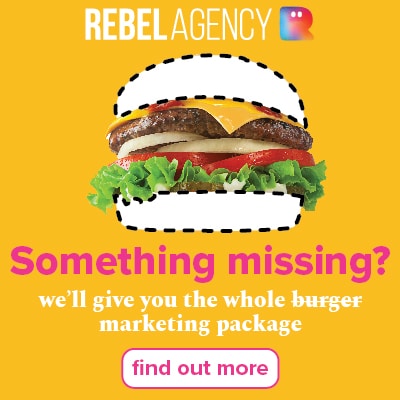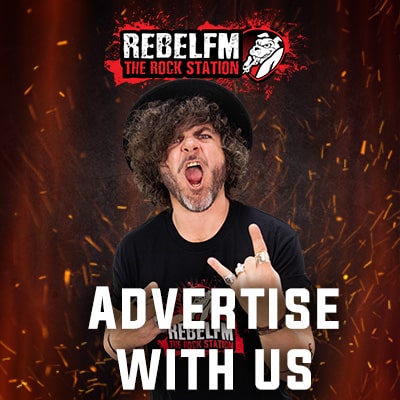In the digital universe, there are three things that are vital to your business; your web presence or online store and that is position, position, position. Not much has changed in the past 60 years. The same principles still apply, but now ‘position’ is called ‘ranking’.
The question is, how do you get your website to the first page of Google or increase your ranking? Did you know that websites on the first page of Google search get 6 times more exposure than those on the later pages? In fact, 91.5% of searchers never bother with the next pages. But, if you are in a competitive industry it’s going to take a lot of work and in some cases a lot of money.
If you are a plumber, a fencer or any other trades provider, getting to the first page of Google is always difficult. If you have a big purse, that will help.
Google Adwords (PPC) is the modern-day Yellow Pages. Remember when we used to use that big yellow book to find a local plumber and not use it to prop up our computer monitor? When you needed to find a plumber, you flipped open the big book to “P” for Plumbers and looked or searched with your fingers down the list. The plumbers with loads of money would buy a big display ad, other smaller ads and most no display ad at all, just a listing. The process is very similar to Google Adwords and the way it works with your Google Ranking.
GOOGLE is a business. Remember that. Nothing (or very little) happens for free. If you are in a competitive industry then you have to pay more than the person who is ahead of you on Google to get above them. Then they pay more and then you pay more. Get the picture. The only winner here is GOOGLE! If you google a common key phrase “I want a plumber on (area)” and start working your way through the pages until you start seeing some organic listings. That’s where you aim to be unless you start paying GOOGLE.
There are ways to get a good ranking on GOOGLE organically (that’s a fancy way of saying ‘free but not free’)
First, let’s talk about how search engines work. When a user types in a set of keywords, into their selected search engine (like Google, Bing or Yahoo), the search engines put those keywords into an algorithm to decide which pages to show and in what order to show them. The Search Engine Algorithm measures how each page ranks for the entered keywords returning the page with the best rank in the top spot. What is the algorithm and how does it work? Google and other search engines use complicated algorithms that rank websites on their relevance on certain keywords and display the ten most relevant and trusted links on the first page of search.
Getting found online when people type in a phrase or keyword is now so important because it can mean the rise and fall of a business.
Ranking on Google and other search engines involve optimising your website with the right keywords and design to be relevant with Google search engine results. In order to rank higher on Google in 2020, you should consider starting from the ground up with your website and SEO strategy to put yourself in the best position to then pay for SEO (and that means giving Google money.
Here are some proven tips which will help you dominate Google’s first page
Improve your website’s user experience
In the modern digital business environment and with over 3 billion users today, the internet has become the world’s leading marketplace. Good user experience has become crucial to business success. Companies have to compete with users’ attention like never before and the question is, how can you as a business owner differentiate yourself from your competitors? Online users always expect an optimised, seamless user experience as a basic requirement across all devices (desktop, mobile, tablet).
Why is it important to your business?
To boost your ranking, it is important for your users to stay on your website and interact with your content for longer. And having a responsive website resulting in better user experience is the key. Without it, your users won’t stay on your website, increasing your bounce rate percentage. So how do you get your customers to spend more time on your website? Optimise your website for faster loading, help them to find the information that they want easily, create great graphics and provide information and quality content.
Related article: 6 Ways To Generate More Traffic To Your Website
Write great content
The heart and soul of an effective optimisation plan is writing search engine optimised content. Almost 93% of all online experiences begin with a search engine and 70% of the links that people click are organic. Content writing is the sure-fire method of having your website ranked on the first page of Google.
Rand Fishkin and Gillian Muessig, founders of MOZ (software for marketing) say “Satisfied searchers who demonstrate their positive experience through engagement with your site or with links to it.” This simply means that users tend to stay on your website if they have something awesome to read, see and then share. And they will keep coming back if you post fresh content on a regular basis.
Longer Content Produces Higher Search Rankings – With SEO (Search Engine Optimisation), we’ve all heard the adage, content is king, but how important is quality content to your SEO rankings? SEO software vendor Moz found that long-form content, which classifies as being over 1,000 words, consistently gets more shares and links when compared to short-form content. Some of the top-ranking posts in Google are those with content containing over 2,000 words. This encourages users to spend more time on the web page and it’s more likely that you have covered more keywords in the post. Longer content tends to get more backlinks which contribute significantly to improving search rankings.
On page SEO
What is on-page SEO? On-page SEO refers to the practice of optimising your web pages to help you rank higher on search engines. The end goal is to increase your website’s organic traffic.
4 Most Important Elements of On-Page SEO
- Valuable, unique, up-to-date, sharable and professional content
- Page title and meta description
- 100% SEO-friendly content
- SEO-friendly design and links
On page SEO is a very important element of your SEO Strategy. The first and most important element of on-page SEO is creating quality content. If your content isn’t interesting to your readers, you probably won’t get many views and a high search engine ranking. The next important element would be your page title and meta description. This combo represents your website on Google. It’s the final step for people before they visit your website, so the most important function of these elements is to activate the searchers to click on your link.
Searchers will see your website the way you can see it (above) and that’s all you need to present yourself. No pictures, no fancy typography, just a few characters to convince the searchers to click through to your website.
Optimising the structure of your content will be the third element of on-page SEO. This involves page optimisation using ranking keywords. Keywords are the words that describe the subject of your content in the shortest and most relevant way. Places that you should put your keywords are as follow:
- Once in your page title
- Once in your meta description
- Once in your ‘H1-tag’ (the most important headline on your page)
- Once in your webpage url
By putting your keywords in the right places, you are making a structure for your content in the right way and this is an important element of SEO. Optimising the structure of your content makes it easier for your readers to read and scan your content.
Last but not the least element in optimising your web design. Your website itself should be responsive enough to load on all devices like what we mentioned on the first topic. It is imperative that your readers can access your web images and contents on their devices. If not, there’s a high chance that they will leave living you a high bounce rate and less website traffic. This has a big influence on your on-page SEO and it’s definitely something you shouldn’t forget in this mobile world.
With all this knowledge, you are now ready to rank your website on the first page of Google. All you have to do is create original and useful content targeting keywords you identified, and once you publish your new content, go ahead and share them across social media platforms. In that way, your content can reach more people and they will be redirected to your website resulting in a high organic traffic and page ranking on Google.
If you follow this guide with a little bit of help from Rebel Agency, you’ll be able to do your on-page SEO in no-time!
The top four ranking factors are;
- Content quality
- Content uniqueness
- Fully crawlable page
- Mobile optimised site
If your website is easy to use and offers valuable information, you’ll get more visitors, who will stay longer on your site and visit more pages, and that will improve your search rank.
Having high-quality content on your website is one of the best ways to increase traffic and improve your search rank.
In a recent poll 57% said on-page content development was the most effective SEO tactic.
Your content must be;
- mistake-free
- keyword-rich
- mobile-optimized
- written to address the specific needs of your target audience
- include valuable links to additional internal and external content
How long does it take to get to the first page of Google?
Nobody can tell you precisely and it depends on many factors. Having an established website, a new post or page can sometimes rank right away. Other times, if the site is new and not authoritative, it can take more time.
Blog posts or pages can build and increase rankings over time often as links and social exposure increases.
Other factors that will affect page rankings are the competitiveness of your keywords and topics. How well your post satisfies your audience. And most importantly, how trustworthy and authoritative Google perceives your site and the author of the content.
Related article: Improve your google ranking with these 5 SEO hacks





